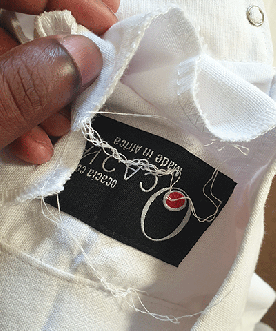Cotton and Africa
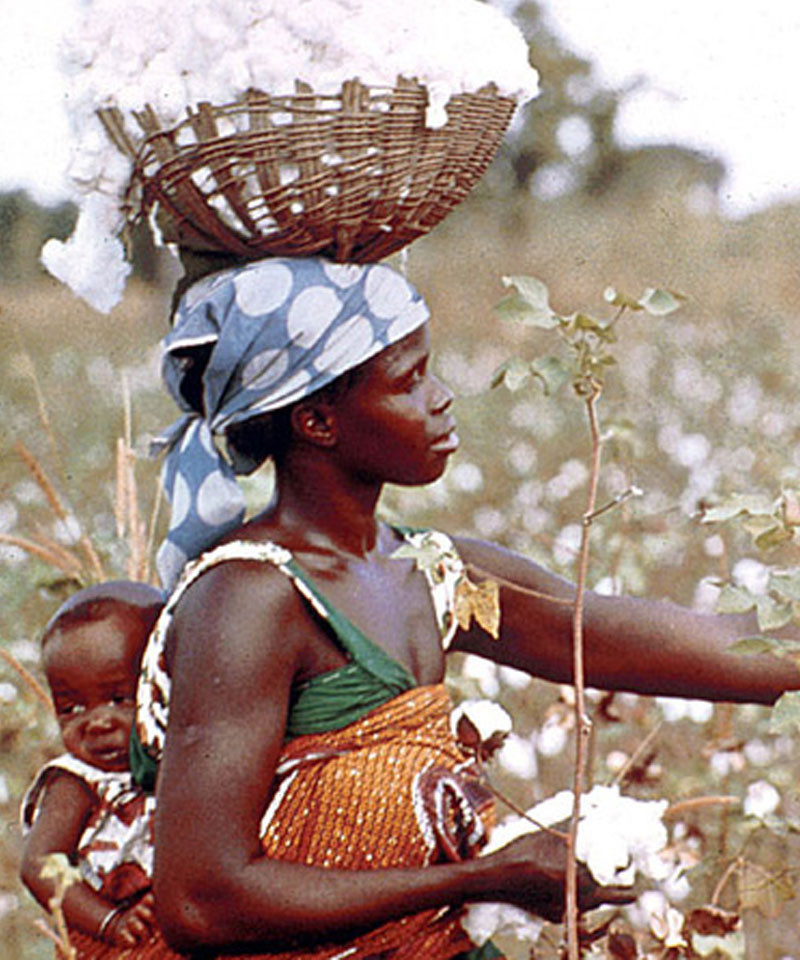
Mar 09 2024
Categories: History
At Ocacia we do not use a lot of cotton, except in denim. But decided to write this quick article because the history of cotton is so integral to the history of Africa especially the West dependence on it and the consequences to African people (being enslaved) due to their need for labor. Native Americans were observed growing cotton by the Coronado expedition in the early 1540s. I am not sure but no one from West Africa had cotton knowledge. They did come with skills in agriculture But I am not sure cotton specialization was one of those skills. The earliest reference to a cotton spinning wheel comes from the Muslim world in the 11th century, it then is said to have gone from Iran to India.
From an economic standpoint cotton made by slave labor accounted for 40% of all British exports (which went back to Africa to procure more captives). 80% of Birtisns essential raw material. Prior to cotton, which came late to Europe via Arab traders, wool was the fabric of choice. Wool had many disadvantages to cotton.
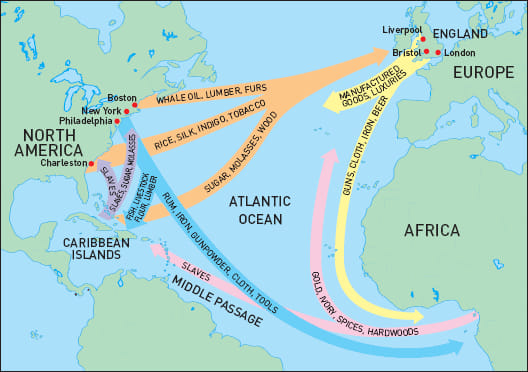
All told more than $600 million, or almost half of the economic activities in the USA in 1836, derived directly from cotton produced by the million-odd slaves" -- Edward Baptist
Cotton produced by enslaved people was the driving force for the territorial expansion in the Old Southwest and fostered trade between Europe and the USA--
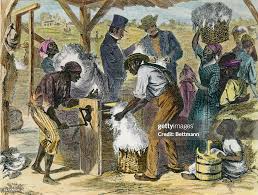
It has long been thought that Arabs (from which the word cotton is derived) introduced cotton in Africa from Asia around the 11th century. Today, however, botanists believe that cotton (Gossypium herbaceum Linnaeus) originated simultaneously from different parts of the World(India, the New World, and Arabia), among which Africa. Archaeologists have found evidence of cotton weaving in Nubia dating from the BC era and in today’s Niger dating from the 1st and 2nd centuries Arab merchants brought cotton cloth to Europe about 800 A.D.
Back in 4500 BC the ancient civilizations of South America were cultivating cotton. In Mexico, archaeological digs have uncovered fragments dating back centuries, showing the common use of fabrics with cotton accessible from the coastline where conditions were most humid. When the Aztecs conquered the areas of cotton cultivation it became a luxury product, giving status for those that wore it and forming part of Mesoamerican culture.
By 1825, cotton was Britain’s biggest import. It became the centerpiece of the developing industrial revolution which impacted the country socially, economically and culturally for generations
When Columbus arrived in America in 1492, he found cotton growing in the Bahama Islands. By 1500, cotton was known generally throughout the world Cotton may have been domesticated around 5000 BCE in eastern Sudan near the Middle Nile Basin region, where cotton cloth was being produced. During the British Indian company cultivation was also attempted in the Caribbean and West Africa, but these attempts failed due to bad weather and poor soil.
The cultivation of cotton and the knowledge of its spinning and weaving in Meroë reached a high level in the 4th century BC The cultivation of cotton and the knowledge of its spinning and weaving in Meroë reached a high level in the 4th century BC. The export of textiles was one of the sources of wealth for Meroë. Aksumite King Ezana boasted in his inscription that he destroyed large cotton plantations in Meroë during his conquest of the region
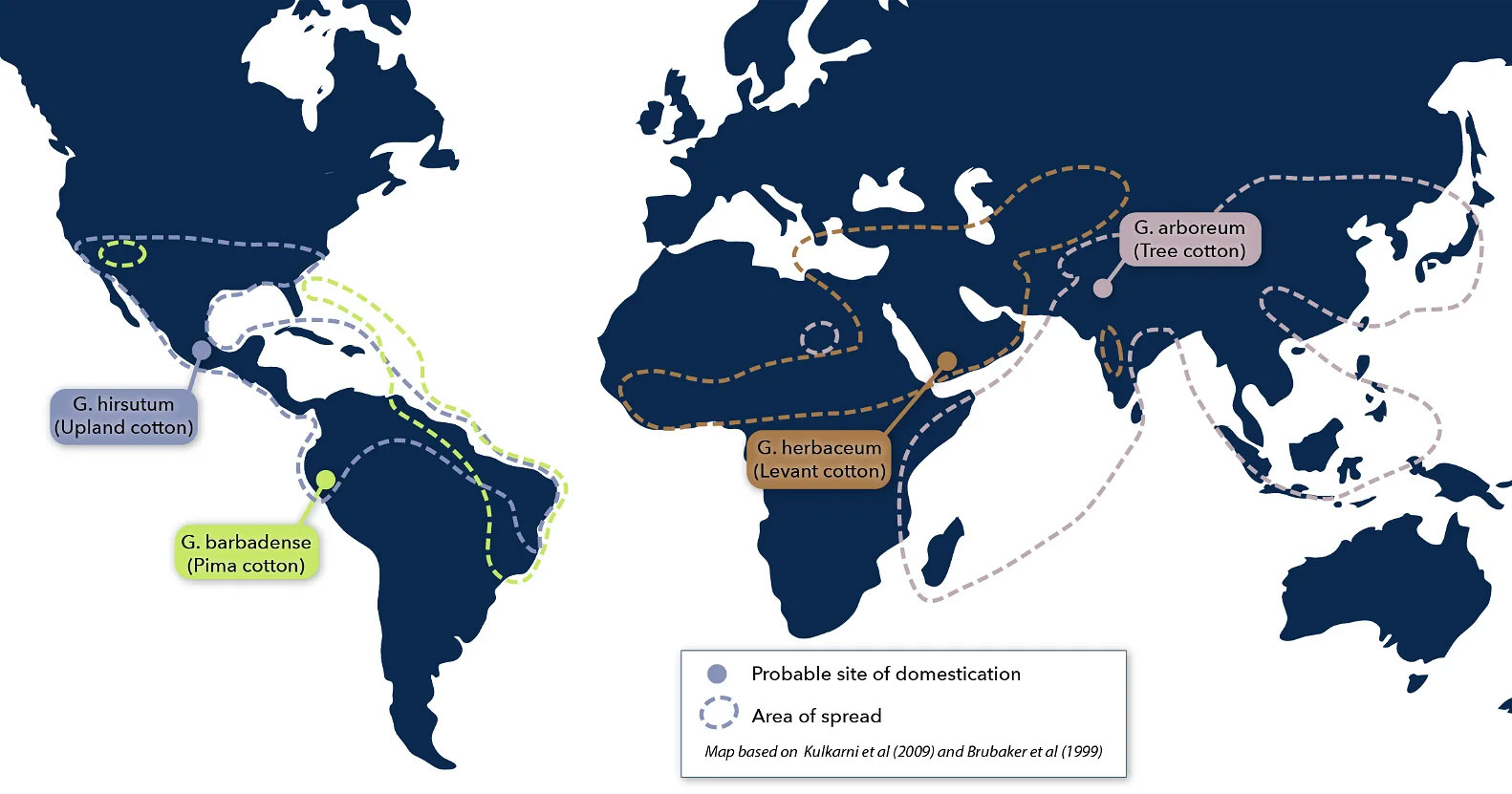
Charles Ball, an African American and author who escaped slavery wrote that the brutality of the cotton industry was enough to make an individual contemplate taking their own life. He said in his 1837 autobiography, Slavery in the United States, “Surely if anything can justify a man in taking his life into his own hands, and terminating his existence, no one can attach blame to the slaves on many of the cotton plantations of the south when they cut short their breath, and the agonies of the present being, by a single stroke. What is life worth, amidst hunger, nakedness, and excessive toil, under the continually uplifted lash?”
According to Gene Dattel, “Britain, the most powerful nation in the world, relied on slave-produced American cotton for over /80 per cent/ of its essential industrial raw material. English textile mills accounted for 40 percent of Britain’s exports. One-fifth of Britain’s twenty-two million people were directly or indirectly involved with cotton textiles.” And it didn’t stop there.
FURTHER READING
https://nerdfighteria.info/v/83eJfEFFZ74/
Comment(s)




